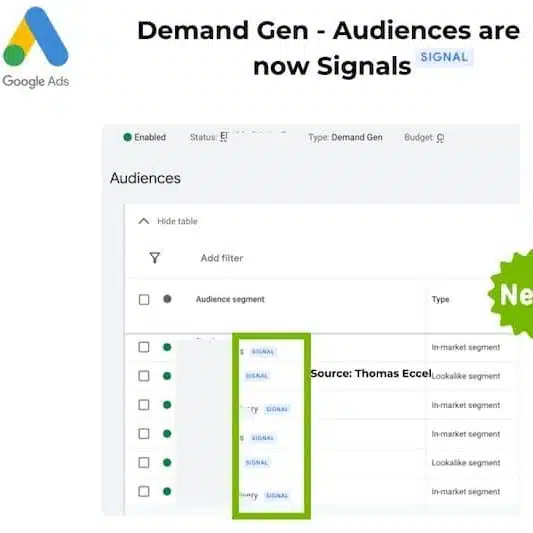Google UI update – Demand Gen audience now seen as ‘signals’
Google redefined Demand Gen campaign audiences as signals instead of targeting parameters, reducing control over audience targeting.
Google categorized Demand Gen campaign audiences as “signals” rather than strict targeting parameters, a change spotted by industry analysts. This is a setting that is triggered when “optimized targeting” is turned on – a setting you already had the control to make. It’s a more direct move from Google than shows how Demand Gen audiences operate.
What it means:
- Audiences and age targeting now being shown as “signals” in the UI.
- Google’s algorithm can use these signals to optimize ad delivery, but does not limit impressions to the defined audiences.
- This allows for broader reach but less advertiser control over who sees the ads.
Why we care. This update to the UI for Google’s Demand Gen campaign makes it clearer that the audience for Demand gen are signals.
The implications.
- Potentially broader reach, possibly affecting conversion rate
- Closer monitoring of audience “signals” and adjustments to bidding strategies.
- Opportunity to discover high-performing audience segments the algorithm identifies.
What they’re saying. “With signals, Google can show Demand Gen ads to users who are not in our defined audience lists,” notes Thomas Eccel, Google Ads markerter, on LinkedIn:

“Nothing has changed with the way audiences work in Demand Gen campaigns.” Google Ads Liaison Ginny Marvin confirmed.
“Demand Gen continues to support audience customization with the ability to target unique audience segments”
What to watch. Whether this gives adviertisers better directions in their strategy and how much audience layering is used with Demand Gen campaigns.
Related stories